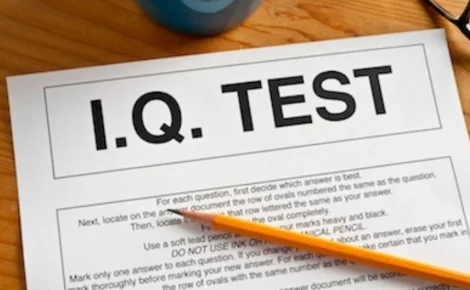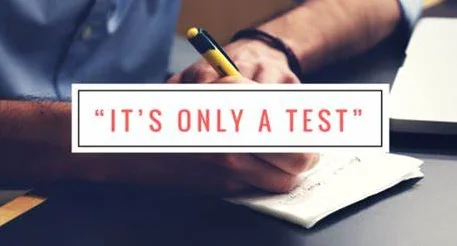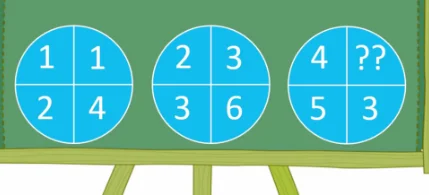When you think about the IQ test, you might think it is an easy measurement of intelligence. However, with just a little bit of preparation, you can ensure that your results reflect your thought process and not just trickery.
Everyone has heard of the IQ test, but few have ever taken one. This article aims to give you the best tips on how to study for the IQ test and improve your score.
Also Read: Can Teachers Join the Military: Armed Forces Teaching Jobs
Can You Study for an IQ Test?

The IQ test is a classic example of how a seemingly simple question can be somewhat complex. The intelligence quotient (IQ) is the number that represents your mental ability compared to the average person.
It’s used to compare your performance with other people and determine whether or not you’re “normal” or not.
You can study for an IQ test to improve your preparedness and acquaint yourself with the type of questions and tasks. However, studying for IQ tests does not increase your chances of passing since they are designed to test intelligence and not the content one knows.
Therefore, it is advisable to only prepare rather than study actively.
Indeed, one can get ready for IQ tests. There are several types of IQ tests, including paper-and-pencil and computerized versions.
The best way to prepare for an IQ test is by understanding what it measures and how it works. Once you understand the process, it’s easier to see how you can work toward improving your score on each question.
How to Prepare for an IQ Test
Preparation is the Key to Success in IQ Test

The most important thing you need to do before taking an IQ test is to prepare yourself for it. The best way to do that is by reading books on the subject and watching videos about it.
You should also practice proctored tests, which are available online and can be taken multiple times.
This will help you get used to the questions and answers as well as the timing of each question.
Know What Types of Questions are asked in an IQ test
There are different types of tests used by psychologists and psychiatrists for different purposes, such as determining whether a person has severe mental disabilities or not or if he/she has a psychiatric disorder like schizophrenia or bipolar disorder.
There are also tests used by psychologists who work with children (i.e., school psychologists) or students (i.e., college psychologists).
Also Read: Do Professors Check Email During Summer, Holiday, or Cold Emails
Tips on How to Pass an IQ Test
The test is not difficult to pass, but you do need to follow these steps:
1. Be Prepared

Being prepared is the most critical tip of all. You should be well prepared before taking the test and have a good knowledge of the test topics.
Study for hours before the test, especially if you have never taken one. You will be tested on several topics; there is no way around this.
Do as much research as possible on the test subject matter, including reading books, newspapers and magazines related to the topic.
This will help you become familiar with the material so that when it comes time for testing, you can answer the questions without having difficulty understanding them.
2. Practice Makes Perfect
To get better at passing an IQ test, you must practice it regularly and become familiar with the questions and their answers. In other words, if you want to pass an IQ test, study it as much as possible!
3. Seek Help
Get help from friends and family members who are also trying to pass an IQ test because they know what to expect from such tests and how to handle them effectively.
Try not to rush through any part of the test, or else you may forget important details that could affect your score negatively later on down the line!
How to Practice IQ test with Answers
The following are some tips for preparing for an IQ test:

- Download the IQ test and print out the answer booklet.
- Memorize the questions and answers beforehand – it can help you get rid of any anxiety or stress during testing;
- Make sure you are well rested before taking the test;
- Practice by taking the test and marking each question according to the answer key below. Practice makes perfect, so try practising every day until you get used to answering questions correctly;
- After you’ve completed each section of the test, check your answers against those in the answer booklet.
- If you made any mistakes on a question, review it until you have it right. You can use this method to practice at any time during your preparation for testing day.
- Don’t answer too fast as this might confuse the examiner;
- Take breaks if necessary for a few minutes during testing;
Also Read: Who taught the first teacher: A Short History of Teaching
Can You Cheat on an IQ test? How
The first thing to remember is that cheating on an IQ test is difficult because it requires a commitment that most people don’t have the time or energy for. It also takes a lot of skill and ability to do well on an IQ test, so many people don’t have the skills to do this successfully.
The chances of someone successfully cheating on an IQ test are very low. This is because the test makers use a wide variety of techniques to ensure that their scores are accurate. These techniques include:
– The test makers have access to a large number of subjects who take the tests and provide feedback on how well they did. This feedback allows them to adjust the questions and ensure no mistakes in their scoring process.
– The test makers have access to a large number of computers that are used for scoring the tests and providing feedback on how well they did. This allows them to examine each question carefully before giving it a score.
– The test makers have access to a wide range of tests they can analyze to see how they compare with each other in terms of difficulty level and reliability levels.
Another “cheating “method involves learning from past tests and using this knowledge to raise your score. While there aren’t any official rules on how to do this, most people agree that there should be no cheating during any part of an exam – including during breaks between sections of an exam.

